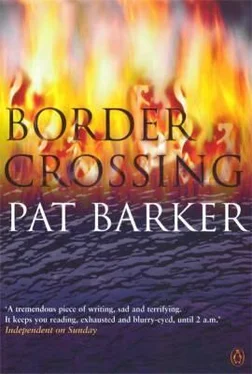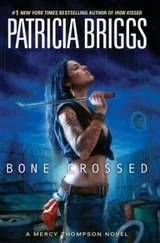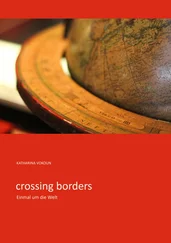‘War movies.’ He laughed. ‘Of course.’
‘Which one do you remember best?’
‘Apocalypse Now, Saw that three or four times.’
‘Isn’t that an anti-war movie?’
‘Didn’t bother him. He just screened out the anti. And he liked some horror films. Good ones. We watched An American Werewolf and I was so fidghtened I hid behind the sofa, and afterwards, days afterwards, I was writing these little notes. You know, block capitals, NOT A REAL WOLF.’
‘What do you remember about it? The film.’
‘The transformation scene. And… oh, it’s ages since I’ve seen it. Umm… There’s a scene where he’s in a cinema, and all along the row there’re decomposing corpses. People he’s killed, or perhaps other werewolves, I don’t know. ‘He paused. ‘I used to have the poster of Apocalypse Now in my room at Long Garth. The huge red sun and the choppers. In fact, I’m not sure he didn’t buy it for me.’
‘Any other good times?’
‘Being in the shed watching him make things. Mainly fences, that sort of thing. He used to go out in all weathers, My mother used to say, “You’re never going out in that, are you?” And he’d be standing in the kitchen door, and he’d say,” When the going gets tough, the tough get going.”‘ Danny laughed. ‘When the going got tough, the tough pissed off.’
Tom let a silence open up, before slipping in, casually, ‘Were you an abused child?’
Danny looked startled. ‘No. Well, the beatings, I suppose
‘Were they frequent?’
‘Yes.’
‘Severe?’
‘Depends what you mean by severe.’
‘Did they leave marks?’
‘Yes.’
‘Bruises?’
‘Yes.’
‘Weals?’
‘Sometimes.’
‘So. Were you abused?’
‘I don’t know. Do you think I was?’
Tom smiled. ‘It doesn’t work like that, Danny.’
‘Was I abused?’ He was massaging his forehead again, this time with his hand hiding most of his face. ‘Oh God. I suppose by modern standards, in comparison with most kids, yes. Slightly.’
‘That’s an incredibly qualified answer.’
‘Yes, well, I think it has to be. If it’d been the 1880s — you know, be a man, my son, send forth the best ye breed, and all that — everybody would’ve thought he was doing a splendid job.’
‘But it wasn’t.’
‘I know, that’s what I’ve just said. By modern standards, probably, yes.’
Tom waited.
‘Slightly.’
‘Slightly?’
‘Yes, slightly. I wasn’t neglected, sexually abused, starved, tortured, left on my own morning, noon and night, scalded, burnt… All of which happens.’
‘I know.’
‘He was misguided, but he did honestly think he was doing the right thing.’
‘What was the worst thing?’
‘The worst beating?’
‘No, the worst thing. The worst time.’
‘Being hung up on a peg. Hung up. Not hanged.’
‘Why did he do that?’
‘I don’t know. I was being obstreperous, I suppose. He lifted me on to the peg, put my jacket over the pegs and left me there to scream.’
‘How long for?’
‘Not long.’ He took a deep breath. ‘I’m determined I’m not going to say, “I was abused, therefore…” Because it’s not as easy as that.’
‘No.’
‘The fact is he was trying to be a good father, and… I hero-worshipped him. He was tall, he was strong, he had a tattoo that wiggled when he clenched his fist, he had a gun, he’d killed people… I thought he was fucking brilliant.’
It took Tom a long time to realize that Danny was not using his father’s violence as a way of excusing his own behaviour. It was rather more sophisticated than that. He was talking about moral circles, the group of people (and animals) inside the circle, whom it is not permissible to kill, and the others, outside, who enjoy no such immunity. For Danny’s father, dogs, cats and most people were inside the circle. Chickens, convicted murderers, rabbits, enemy soldiers, farm animals, enemy civilians (in some circumstances), game birds, children (in uniform), burglars, if caught on the premises, and Irishmen, if suspected of being terrorists and providing the appropriate warnings had been given, were outside. Danny simply presented the picture of a small boy, in short trousers, sitting on a bale of scratchy straw, listening. The question was implicit. You said I had a clear understanding that killing was wrong. Are you sure?
Danny found it harder to talk about the break-up of his parents’ marriage.
‘What went wrong?’ Tom asked.
‘The farm was failing. Basically, once he’d done all the field draining and fence building and that sort of thing, he lost interest. Didn’t have a feeling for the chickens, for keeping them alive, I suppose. And the whole point about battery hens is they’re supposed to stay alive, for a couple of years anyway. You can’t wring their necks, and then complain they’re not laying. And he was a bit above the hard grind of working on a farm. Or he thought he was. He was an officer and a gentleman, so obviously if he was a farmer he had to be a gentleman farmer — what other sort could he possibly be? He spent a lot of time in the lounge bar of the Red Lion, buying rounds of drinks with money he didn’t have. The locals saw him coming. They were laughing at him behind his back, overcharging him…’
‘This is your grandmother again.’
A smile. ‘That’s right. She didn’t like to see my mother dragging herself about doing really hard physical work, while he propped up the bar. Quite right too.’
‘You listened to the women talking?’
‘Yes.’
‘What did you feel?’
‘Angry. Because in my mind he could do no wrong.’
‘In spite of the beatings?’
‘They were my fault.’
Tom let a silence open up. ‘So. Financial pressure.’
‘Yes. And then my mother found a lump in her breast, and she had to have a mastectomy. I went to the hospital with Dad, but I had to stay outside in the car. I was there all by myself, splashing in puddles. He seemed to be gone years, and then he came back, and pointed to one of the windows. She’d dragged herself out of bed to see me. He said, “Look, there she is.” And I waved like mad, but there were hundreds of windows. I didn’t dare say I couldn’t see her. Then, after she came out, things really went to pot. She just couldn’t do it any more. They got this girl Fiona in to help, and he rallied round a bit, of course he did, but I don’t think he had the slightest comprehension of what she was going through. One or two jokes when her hair fell out, that can’t have helped. And one day I was walking across the field to the cowshed
— Dad’s workshop — and I heard Fiona laughing. I don’t know why I didn’t walk straight in, but I didn’t. I looked through the window, and there they were, on the bales of straw. Hard at it.’
‘What did you do?’
‘Went away.’ A pause. ‘You know, the awful thing is, I blamed my mother. That was the really bad time. And then he left. And, by a curious coincidence, so did Fiona.’
‘How old were you?’
‘Nine years and 362 days. It was three days before my birthday. I was sure he’d left me a birthday present somewhere. I ransacked the house, but of course he’d cleared everything out, all his drawers and cupboards were empty. And then I thought, He’ll have left it in the cowshed. And as soon as I thought about it, it was so obvious that’s what he’d do. So I went and searched there, and I found his binoculars. They were hanging up under an old coat, and I sort of convinced myself he’d hidden them there, that was the present, he’d left them for me, only he hadn’t had time to wrap them. And I kept them round my neck all the time. Went to bed with them, everything. They were quite powerful: you could zoom in really close, see the hairs in somebody’s nose if you wanted to. And they wouldn’t know. I remember looking at my mother crossing the yard with buckets of feed, and her hands were red raw. She’d just come out of hospital after the third lot of chemotherapy, and she was feeling sick
Читать дальше












